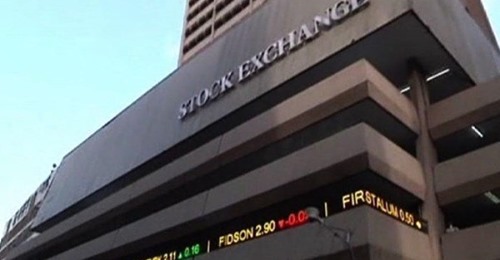The Importance of Total Equity Returns – Coronation Research

This is not a good time for the equity market, with the NGX All-Share Index up just 2.93% year-to-date. Yet the total equity return, which is calculated by adding dividends reinvested, is 7.53% year-to-date. Over the long-term reinvesting dividends has been proven to significantly enhance equity returns. Since 1 January 2016, for example, the NGX All-Share Index has returned 53.51% while the total return has been 125.10%. Successful long-term equity investors reinvest their dividends
The Importance of Total Equity Returns
Investors in the NGX All-Share Index are probably asking where their returns have gone this year. As of last Friday, the NGX AllShare Index was up 2.93% year-to-date, having been up 26.61% year-to-date on 27 May. Three rises in the Money Policy Rate (MPR) of the CBN have seen investors rotate into Money Market and Fixed Income investments, leaving the equity market in the shade. The NGX All-Share Index is down 15.15% since mid-year, with much of the damage being done since the beginning of October. It is down 10.31% over the past six weeks.
Long-term investors, on the other hand, know that this is not the whole story. Investing in equities means gathering dividends and dedicated equity investors reinvest these into their stocks. This generates total returns. In contrast to the NGX All-Share Index, the NGX All-Share Total Return Index is up 7.53% year-to-date, a significant difference

Note that, in the short term, the total return index begins to outperform after the payment of full-year dividends four or five months into the year and continues to do so with the payment of interim dividends. This gives equity investors an incentive to hang on to their shares up to and including due dividend dates. Once dividend payments (or the majority of them) are secure, however, they may take a second look at their holdings, especially if market interest rates are going up and T-bill returns and FGN bond returns are improving. Other equity investors might simply hold on to their shares for the long term, knowing that market swings are difficult to time and that reinvesting dividends makes a positive difference.
What does this difference mean in the long run? In the next chart, we present the NGX All-Share Index going back almost seven years (taking our starting point as 1 January 2016) and compare it with the NGX All-Share Total Return Index. Taking seven years (minus seven weeks, as of today), the NGX All-Share Index has returned 53.51% while the NGX All-Share Total Return Index has returned 125.10%. The NGX All-Share Index has given a compound annual growth rate (CAGR) of 6.44% over this period while the NGX All-Share Total Return Index has delivered a CAGR of 12.55%.

Unfortunately, a CAGR of 12.55% does not beat Naira inflation over the same period, though it goes much further in this direction that T-bill rates and FGN bond rates since Q4 2019, with FGN bond rates only recently exceeding the 12.55% level this year. Another unfortunate factor is the effect of withholding taxes which slightly reduce returns for all but tax-exempt investors. However, this short study merely takes the broad index as a basis for calculating returns. In our publications, Equities for a Superior Return, 12 November 2021, we selected stocks with high returns on equity (RoE) and showed how holding these for the long-term produce returns well in excess of inflation. This is a subject we intend to revisit in a future publication this year
FX
Last week, the exchange rate at the Investors and Exporters Window (I&E Window) lost 0.06% to close at N445.75/US$1. Elsewhere, the foreign exchange (FX) reserves of the Central Bank of Nigeria (CBN) decreased by 0.38% to US$37.37bn, a 10-week low, as the CBN continues to intervene across the various FX windows. With the end of the year in sight, the CBN might reasonably be satisfied that it has maintained its foreign exchange reserves at close to their historic highs this year and moved the official exchange rate only slightly in the process. It appears to us that the CBN can continue in this mode for several months.
Bonds & T-bills
Last week, trading in the Federal Government of Nigeria (FGN) bond secondary market was bullish following improved system liquidity. As a result, the average benchmark yield for bonds fell by 6bps to close at 14.45%. Across the curve, the yields on the 3-year (- 21bps to 14.30%), 7-year (-18bps to 14.67%) and 10-year (-7bps to 14.65%) bonds declined. Our view remains that the combination of thin system liquidity and elevated Federal Government domestic borrowing will to drive yields upwards over the coming months.
Activity in the Treasury Bill (T-Bill) secondary market was bullish as the average yield for T-bills fell by 28bps to 10.62%. Conversely, the yield on the 349-day T-bill expanded by 19bps to close at 15.50%. At the T-bill primary auction, the DMO allotted N310.12bn (US$695.74m) worth of bills. The auction recorded a total subscription of N520.92bn, implying a bid-to-cover ratio of 1.68x (vs 1.93x average of the past auctions in the year). Consequently, stop rates across the 91-day (6.50%) and 182-day (8.05%) bills remained unchanged from the last auction while the 364-day (-51bps to 13.99%, implying an 16.26% yield) bill fell. Elsewhere, the average yield for secondary market OMO bills fell by 2bps to 10.19%, while the yield on the 172-day OMO bill fell by 3bps to 10.96%.
Oil
Last week, the price of Brent fell 2.62% to settle at US$95.99/bbl, eroding the previous week’s gains. Nonetheless, Brent is up 23.41% year-to-date and has traded at an average of US$101.41/bbl, 43.05% higherthan the average of US$70.89/bbl in 2021.
Surging COVID-19 cases in China, surpassing contagion levels last seen in 2020, offset better-than-expected US inflation data for October and put downward pressure on oil prices.
Our view is that a looming EU ban on Russian crude from December poses upside risk for oil prices going forward. Hence we maintain that prices are likely to remain well above the US$73.00/bbl set in Nigeria’s government budget
Equities
Last week, the NGX All-Share Index lost 0.68%, eroding past week’s gains to settle at 43,968.75 points. Consequently, its year-to-date return fell to 2.93%. Guinness Nigeria (- 9.95%), Flour Mills of Nigeria (-9.90%) and Cadbury Nigeria (-9.69%) closed negative while Geregu Power (+8.50%), FBN Holdings (+3.54%) and United Bank for Africa (+2.86%) closed positive. Performances across the NGX sub-indices were broadly negative as the NGX Insurance (-2.25%) led the decline, followed by NGX Consumer Goods (-1.95%), NGX-30 (-0.82%), NGX Oil and Gas (-0.74%), NGX Pension (-0.53%) and NGX Industrial Goods (-0.29%) while NGX Banking (+0.17%) closed higher.
Model Equity Portfolio
Last week the Model Equity Portfolio fell by 0.62% compared with a fall in the NGX All-Share Index of 0.68%, outperforming it by 6ps. It has gained 8.29% year-to-date compared with a gain in the NGX-ASI of 2.93%, outperforming it by 536bps

The market is in bad shape. MTN Nigeria last week suffered a considerable loss, which caused it to end the week down 2.54% year-to-date, a strange situation for a stock which was not expensive at the beginning the year and for a company whose business has continued to grow (quarterly earnings generally have been good). It may the case that the market is expecting an issue of stock, and thinks that this will be offered at a discount: but, given that more than one stock offering are due, this could cast a cloud over share price performance for some time. This is not a happy situation. Dangote Cement, another market bellwether, was also fragile last week, losing 0.8%.
Last week we continued with our tactics of reducing our notional positions in Airtel Africa and Dangote Cement to four percentage points each below their index weights. We completed these tasks with notional sales. In the case of Nestle Nigeria we could only reduce our notional position by 0.3 percentage points and will continue this week in our quest to reduce our notional holding to 1.7 percentage points. Apart from continuing to make these notional sales in Nestle Nigeria, we plan no further changes this week.




